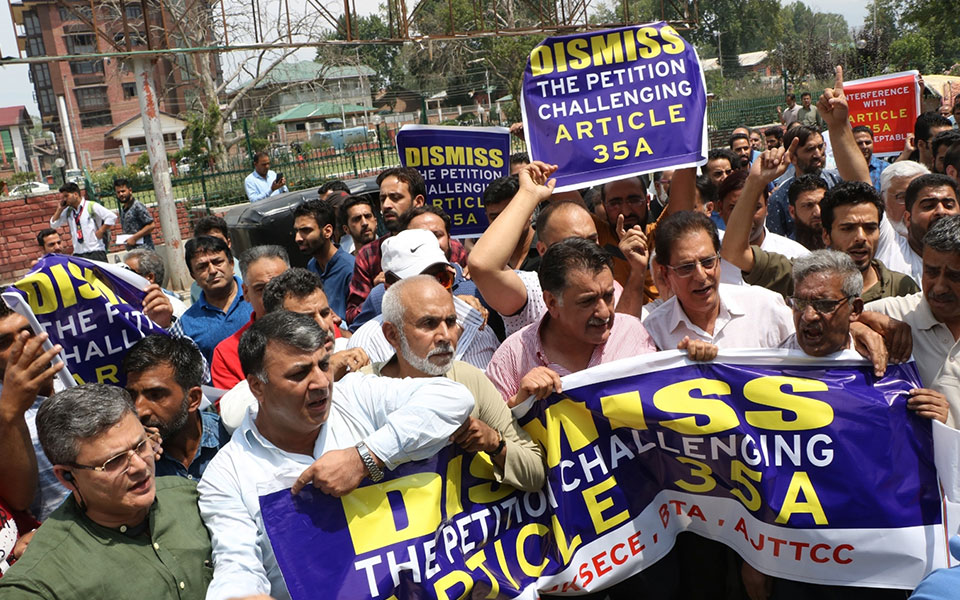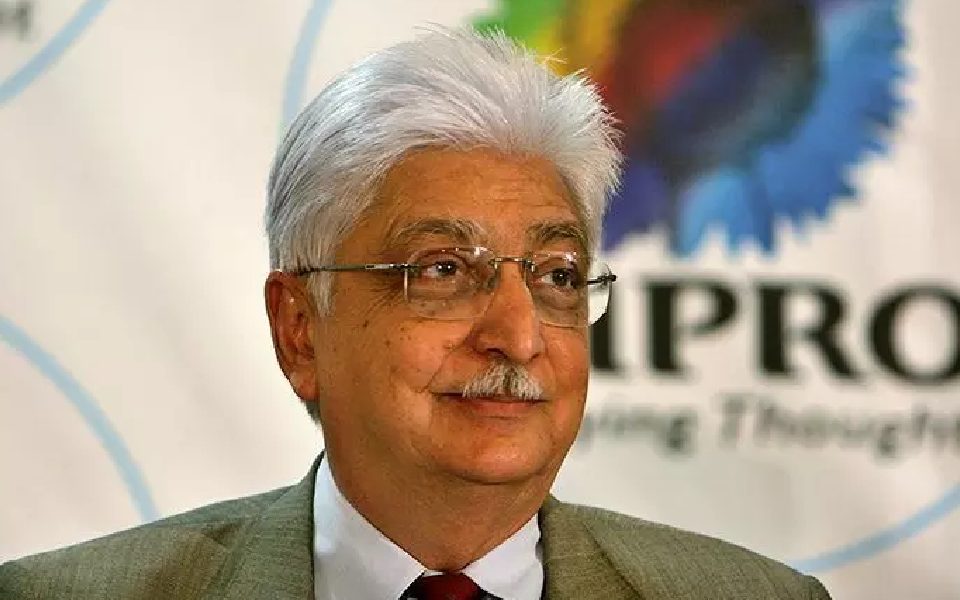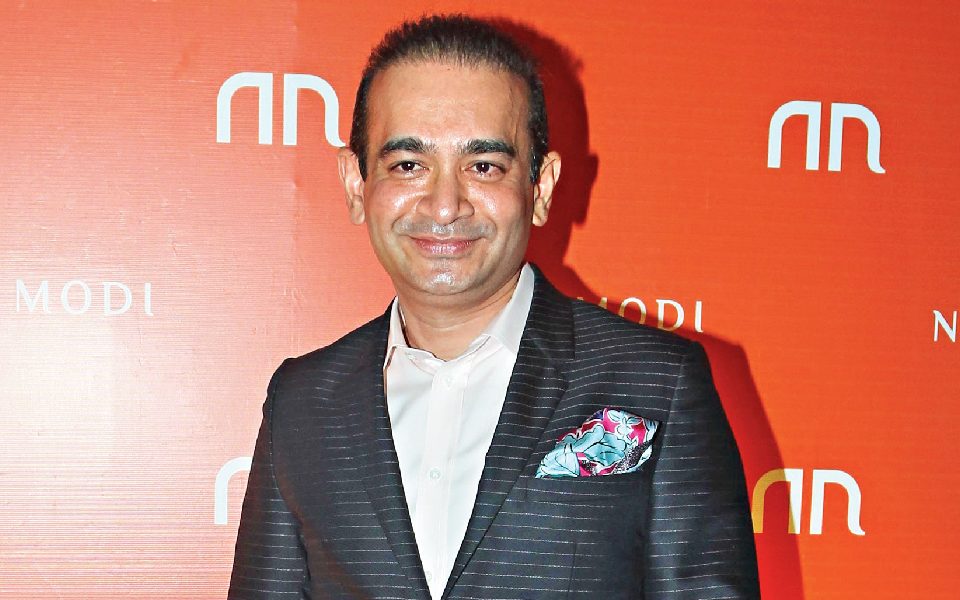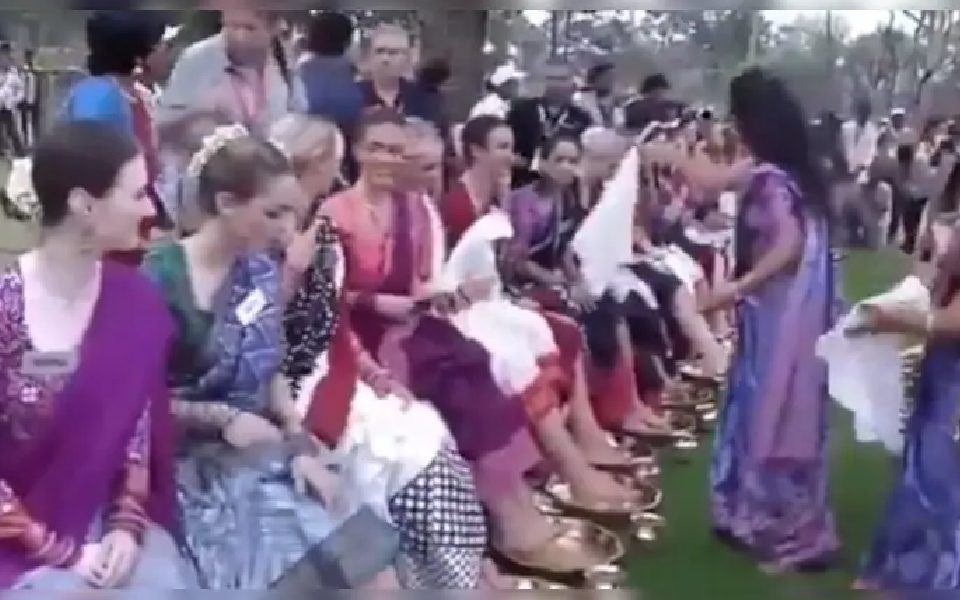New Delhi, Aug 6: The Supreme Court on Monday refused to hear the challenge to Article 35A in the absence of a judge of a three-judge bench that was hearing the case and directed the next hearing on August 27.
It also said that on its next hearing it will decide whether the matter should be referred to a five-judge Constitution Bench.
As some lawyers insisted on the hearing, a bench of Chief Justice Dipak Misra and Justice A.M. Khanwilkar said as the matter was being heard by a three-judge bench also comprising of Justice D.Y. Chandrachud, and since the later was not available, it could not be heard.
"Article 35A is in vogue for the last 60 years and we will only see whether it is violative of the basic structure of the constitution," said Chief Justice Misra as he refused the plea for an early hearing.
The Jammu and Kashmir government has already sought adjournment citing panchayat and urban bodies election scheduled in September.
Attorney General K.K. Venugopal told the court that with elections to 6,000 Panchayats to be held in September, "it was not an opportune time to hold the hearing".
Venugopal also told the court that the interlocutors were also talking to the state government.
As the court directed the listing of the matter from the week starting August 27, Additional Solicitor General Tushar Mehta appearing for the Jammu and Kashmir said: "We reserve the right to seek adjournment on the grounds cited in the letter to the court."
Let the Truth be known. If you read VB and like VB, please be a VB Supporter and Help us deliver the Truth to one and all.
Bengaluru: The Azim Premji Foundation has announced the Azim Premji Scholarship for the academic year 2025–26, aimed at supporting up to 2.5 lakh girls across 18 Indian states who are pursuing higher education after completing school. An official release from the foundation also stated that in the coming years the scholarship will be implemented across the country.
When to Apply:
According to a release from the foundation, the application process for the Azim Premji Scholarship 2025–26 will commence in September 2025. “Details of the program and any changes in the program design or coverage will be notified at the start of the application process,” the release added.
Where to Apply:
According to the release, the scholarship this year will be implemented across 18 states, namely Arunachal Pradesh, Assam, Bihar, Chhattisgarh, Jharkhand, Karnataka, Madhya Pradesh, Manipur, Meghalaya, Mizoram, Nagaland, Odisha, Rajasthan, Sikkim, Telangana, Tripura, Uttar Pradesh, and Uttarakhand. Students residing in these states and enrolled in recognised higher education institutions will be eligible to apply.
How to Apply:
-
Girls who have completed their Class 10 and 12 education in government (public) schools and have secured admission in a bona fide higher education institution either a government-run college/university or select private institutions can apply for the scholarship.
-
Once the application portal opens in September, students will be required to submit personal details, educational qualifications, proof of admission, and bank account information.
-
The scholarship amount ₹30,000 per year will be transferred directly into the students' bank accounts in two instalments each academic year, read the release.





